Rosen’s Turn: With Paula Vogel’s “Indecent,” Eric Rosen is creating LGBTQ theater that matters
Arena Stage's Indecent marks the acclaimed director's return as an influential champion of LGBTQ theater

When the Kansas City Repertory Theatre put out the call for a new artistic director, Eric Rosen didn’t think he stood a chance.
“They asked me if I’d think about applying for the job, and I thought, ‘No, of course not,'” Rosen says. “I run an American gay theater. I would never get hired to run this big regional theater that’s six times larger than my company.”
More to the point, he didn’t think KC Rep would want its next leader to be a self-described “super queer theater artist,” one who had co-founded Chicago’s influential, LGBTQ-focused About Face Theatre. But, twelve years ago, he threw his hat in the ring at the company’s behest. “And then I saw that all the other people who were going for the job were fancy older people in their 50s and 60s,” he says.
He ended up beating out every other candidate for the job — though he deliberated for a few months before accepting. To say it was the right decision would be an understatement. Among other things, he met Claybourne Elder toward the end of his first year on the job, when Moises Kaufman cast the young actor in a KC Rep production of Into the Woods. By the end of the run, romance had blossomed between Elder and Rosen, who are now married and fathers to one-year-old Bo. “I love being a dad — it’s the best thing that ever happened,” says the 48-year-old.
Elder, currently a standby in the revival of Torch Song Trilogy, which ends its Broadway run on Jan. 6, has been a regular visitor to D.C., most recently last summer when he starred in Passion at Signature Theatre. As it happens, Rosen was in D.C. with Elder for much of that summer sojourn, as he was gearing up to helm a production of Paula Vogel’s Indecent that recently launched at Arena Stage and will travel in 2019 with the same cast and crew to Kansas City Rep and Baltimore’s Center Stage.
“Indecent really marks the beginning of the next part of my life,” says Rosen, who has completed a 10-year run at KC Rep. The tenure “wasn’t ever controversial, but I certainly pushed the envelope hard, not just in terms of LGBTQ issues, but in terms of diverse casting…and in the amount of outreach we were doing in communities that traditionally weren’t involved in the company. And it changed the city, it changed the community. And that was all really exciting, to shake things up in a big way [to show] that, wow, theater matters.
“Honestly though,” he adds, “I just felt like I was starting to lose sight of the work I want to do as an artist for myself, not for a whole company.” Among other things, Rosen, with New York as his and Elder’s new home base, can now “reclaim my queer theater mantle.”
He succeeds in that goal with Indecent, which shines a light on a momentous — though largely forgotten — chapter in theater history. The drama by Vogel, a lesbian and native of D.C., relays a century-old story of a time when New York authorities shut down a Broadway show and arrested 16 members of the cast and crew for indecency — chiefly due to a frank and relatively flattering depiction of same-sex love and sexuality.
“I majored in Jewish and queer literature and theater both as an undergraduate and graduate student,” Rosen says. “So in a way, I was born to direct this play. I’ve been thinking and talking about these issues forever.”

METRO WEEKLY: Indecent surprises people because of its lesbian content, which is notable given that it’s based on a play from over a century ago.
ERIC ROSEN: Indecent is a play about a play called the God of Vengeance. I first read God of Vengeance when I was a graduate student at Northwestern, maybe 23 years old, studying Jewish theater, with a particular interest in how LGBTQ issues were represented in the early 20th century. God of Vengeance was included in a book called “Three Great Jewish Plays.” I flipped through and stumbled upon the scene of the two girls in the rain. I had to close the cover to make sure I was reading the right book. It was just so unimaginable that there was this really potent, really gorgeous, really lyrical lesbian relationship at the center of this Jewish play that at that time I thought no one had ever heard of. I thought I’d made the great discovery of the century.
God of Vengeance is a play about a girl who falls in love with an older woman, and her punishment in this moral universe is that she has to go live with her girlfriend. That’s supposed to be the tragic ending I guess, but I don’t think [playwright] Sholem Asch meant it to be tragic. I think he meant it to say this love was the only pure thing in this very immoral world.
MW: In his letter defending the work, reprinted in the Arena Stage program guide, Asch refers to the relationship as being as much maternal as it is romantic.
ROSEN: He says it’s all kinds of love — maternal, sisterly. But he does nod to it being a romantic love, and it’s clear that it is. When you’re trying to defend your play against charges of indecency or obscenity, you might try to paint a different picture than even if you’re just talking about it [casually]. I think he was incredibly progressive. All his work is incredibly forward-thinking, and it’s comforting to me in a way that there was this guy 110 years ago thinking and talking about the same issues that we’re thinking and talking about now — about LGBTQ issues, about Jewish stuff. It makes me feel less alone in the universe.
MW: Do you know what inspired Asch to write about a lesbian relationship? Was it common in his era?
ROSEN: It was not unheard of. There are lesbian stories in the book that Fiddler on the Roof is based on by Sholem Aleichem called Tevye the Dairyman. There are same-sex relationships that pop up, particularly among women, in Jewish literature from the era. Not a ton — three or four examples. So it wasn’t like he was pulling the idea out of the air. Also at the turn of the century, as Asch says in this play, everyone was talking about sexual identity. Everyone was talking about Freud and the last great resurgence or opening up of sexual identity before the Gay Liberation Movement. All across Europe and Eastern Europe and in England — Oscar Wilde, Marcel Proust — there were tons of interesting things being said and written between 1880 and 1920. Then after the depression, the world became much scarier and more conservative.
Asch’s play had been performed all over the world in front of tens of thousands of people within the tent, so to speak — among Jewish people in Yiddish, [or] when it was performed in German. I think what Paula Vogel is really asking with this play is why it was not controversial then and only [became so] at a really critical moment in Jewish history in the early ’20s, when many Jewish leaders were trying to lift quota laws so that all the Jews fleeing Europe would have a place to go. They were essentially uncomfortable about any representation of Jewish life that was perceived as immoral or obscene. And I don’t think that’s necessarily an invalid concern given what we know came next.
So I have a lot of compassion in a way, especially since the Tree of Life massacre in Pittsburgh. I used to think Rabbi Silverman, who petitioned to have the play shut down, was sort of the antagonist. Since history has changed in the course of this rehearsal process, I think he might’ve had a point. I don’t think that’s what Paula is arguing, but it is a complex issue when you have a culture and a language and a history and a people trying to emigrate to a new place. The parallels are terrifying every time you turn on the news. What we’re doing on our southern border is not dissimilar to what the United States was doing in the ’20s in terms of who we turned away and what we ignored. Shiploads of Jews were sent back to their own fates. So it’s a complex set of issues.
MW: You’re saying you had a different take on this play a year — even a few months ago — than you do now?
ROSEN: What’s fascinating is that when I first saw this play, I felt it was important and exciting, but the Holocaust wasn’t much on my mind. Anti-Semitism wasn’t on my mind. Hatred of gay people, of governmental policies curtailing our rights, wasn’t much on my mind. But now, especially in the six weeks that I’ve been here, history has changed. And you can feel it in the audience — that people are receiving this play in a much more personal way, that it feels very close to how we’re living right now. And I would’ve had no way of knowing that was going to be true. I’m sorry that it’s true. But as an artist, I’m lucky to get to be working on a play that gives me some feeling of power to be able to talk about our biggest fears as communities of difference.
For people who identify as queer/LGBTQ, people who identify as Jewish, who identify as anything other than White Anglo Saxon, it’s a complicated moment. The play really tackles that head-on in a way that is also really funny and sexy and vibrant — and it isn’t sad until it’s sad. But I think if it works, you leave wanting to pull it apart and understand how and why those issues happen and how they relate to now. As someone who makes plays, that’s the most you can hope for.
MW: There’s also more to Indecent than just the historical lesbian content that makes it a must-see for LGBTQ individuals.
ROSEN: At its heart, Indecent is a play about a scene, and that scene is about two women in love kissing in the rain. That scene literally changed the world — changed how LGBTQ people were represented on stage in New York and in England for the next 40 years. Tennessee Williams wrote the way he wrote elliptically in and around sexual identity because of what this play triggered in the culture. All or much of 20th century literature was impacted by this one scene in this one play that happened to be about a lesbian kiss — that, to me, is thrilling. And it’s so exciting to me to think when gay people come to the play, that we see a piece of history that most of us couldn’t have imagined is true, but it is true. That gives me a tremendous amount of hope that the work we’re doing right now will be relevant a hundred years from now and that we’re standing on the shoulders of people that we’ve never heard of, never thought about. But they gave us an inheritance really as powerful as anything we received from the great LGBTQ writers of the mid-20th century.
We went from an experience of tremendous freedom as LGBTQ people and Jewish people to a terrifyingly restrictive and murderous and genocidal impulse to uproot both gay people and Jewish people out of the world. But that there was this other period that lasted 30 or 40 years, like ours has, in which there was a tremendous amount of freedom, it gives me hope that we’ll get through what we’re living through right now and come out on the other side in a better moment.
MW: When you were studying queer theater and starting About Face, did you think you would ever become a father or legally marry?
ROSEN: No. We actually wrote a play that was performed at the Democratic National Convention in Chicago in ’96 that was very critical of the Defense of Marriage Act. So we were talking about marriage issues in the earliest days of our theater company. We were really wrestling with how can we live in a world in which DOMA is the law of the land and how Clinton could even sign it. But it wasn’t a logical progression. We had just gotten through the worst of the AIDS crisis.
People who were five years older than me were really kind of the last generation in which many people lost many, many friends. I’ve sadly lost three or four people that I loved to HIV and AIDS — but not 40. So the culture was changing, life was changing. And I didn’t really have a glimpse that my future was going to include getting married. But I did always want kids and I always talked about that being a life goal from when I was 24.
When I took the job directing the Kansas City Repertory Theatre, I thought, “All right, I’m just going to be single and I’m gonna work hard and my life is just going to be about building my career, and that’s perfectly fine.” And then 10 months later, I met Clay. And two years after that we were engaged. And then had a kid four years after we married. And here we are. So remembering that gives me courage in this moment as I’m looking forward. I don’t exactly know what’s going to happen, but I think it’s when you take that kind of unlikely step, amazing things happen and your whole life changes.
MW: You were in Chicago before Kansas City, but you didn’t grow up there, right?
ROSEN: No, I’m actually from Asheville, North Carolina. I went to UNC Chapel Hill for undergrad. And I lived in North Carolina on and off until I was about 14. My parents divorced, and then my dad’s family moved to a suburb in New York and I went to junior high and high school there.
MW: Did you aspire to a life in the theater growing up?
ROSEN: Pretty much. I was the lead in high school plays. And I went to college thinking I was going to be an actor, but then I started directing plays my sophomore year of college and I’ve never been in a play since. I have no idea if I was a good actor or not but I didn’t love doing it. As soon as I directed a play I thought, “Oh this is what I’m supposed to do.”
But I was also very curious about ideas and books and was kind of nerdy and academic. So getting a doctorate seemed like the right path for me at the time.
MW: When did you come out?
ROSEN: Right after I got to Northwestern. I was 21 or 22. The Stonewall 25th anniversary I remember really clearly, that was the summer of ’94. I came out about two years before that. It was an exciting time to be gay and kind of claim it proudly and openly. In North Carolina, I didn’t date and I was really serious. I worked really hard. So for me coming out was an explosion into being alive and it was thrilling and fun.
And I’m lucky that I didn’t live in a time or grow up in a family in which it was shameful. It wasn’t. When I came out, my parents said, “Of course we knew that. We’ve known that since you were little.” I wish someone had told me. I’m one of five children, but I’m the only gay in the entire extended family. That I know of.
MW: You grew up Jewish?
ROSEN: Mostly. My biological mother was not born Jewish but she converted and we were raised Jewish. But my parents were hippies. And they didn’t care. So I wasn’t raised in any religious way. My freshman year of college I took a History of the Holocaust class, and it just floored me. I knew about that stuff, but at that time — it was 44 years after the Holocaust when I took that class — and that’s not a lot of time. 44 years ago from now is the ’70s.
MW: That’s an interesting perspective.
ROSEN: I was an 18-year-old kid in North Carolina finding out that that’s where half of my family died. It becomes really personal when you think “My grandfather’s family, my grandmother’s family, everyone who didn’t emigrate and come over is dead.”
I remember feeling outraged that I didn’t know this history more. When I came out I was outraged that I didn’t know how much of this stuff there was in the world. And one of the reasons I wanted to start About Face was to create a place where young people, especially, could find themselves represented on stage. One of the things we did at About Face was start a program for high school students, the About Face Youth Theatre, in which we created new plays with out kids long before anybody was doing that kind of work. And they had those plays about their own lives performed in our main stage season. So you’d have all these adults who had just gotten through the AIDS crisis coming and hearing these stories of these out kids, and it was really powerful — for the adults and for the young people. That program still exists. It’s been going on for 22 years and the first class of that program in ’99 are now pushing 40. Which is so weird. But that was always so important to me that I could make a difference in using theater to make visible what had been invisible and to make safe what had felt so threatening, and to do that in a way that you couldn’t undo.
I think that by working with young people in theater, you’re planting seeds that are going to flourish 20 years from now, and who those people are in the world as lawyers or bankers or spouses or artists. What they did at our theater is part of who they are now, and that’s really moving to me. Especially now as a new dad. In a very personal way I’m like “Wow, everything I’m doing right now is going to be a part of who Bo is his whole life.” It reminds me of how I felt about working with kids when I was in my 20s and early 30s.
MW: Building on what you said about feelings of historical outrage, it wasn’t until I went to the U.S. Holocaust Museum soon after it opened that I became fully aware of the gay aspect of the genocide.
ROSEN: I was just at the Holocaust Museum the other day. A very emotional day. Especially in working on this play, it felt both necessary to go because we’re talking about some complicated real lives in the play. It’s very well researched and Paula Vogel knows what she’s talking about. There are survivors and children of survivors that are coming to see the show, especially here and in Baltimore. That’s an important thing that we have to handle with respect and integrity.

MW: It could be that some of your family, your ancestors, those who perished in the Holocaust, that some of them might have been gay.
ROSEN: Maybe! I mean, I don’t know. My grandfather’s family, they came from a little tiny town in Poland. Not that far from Krakow. This play shows that it was complicated. Asch, too, came from a shtetl in Poland, and his wife was much smarter than him. Much more educated. She was the socialist, she sort of taught him. So if he came from a shtetl and he was writing about lesbian identity in his very early work, then yeah, there must have been, right? Cause he was writing about what he knew and the world he came from. He wanted to write things that are about everyone, and I.L. Peretz, the Yiddish literature giant of the era, said, “Write what you know.” And that’s one of the creative arguments in the play — do you write from your own experience or do you write from your own imagination? I think it’s an interesting question.
MW: What other LGBTQ plays would you like to stage or revisit?
ROSEN: I’m actually thinking about that a lot. The first play that About Face did was a play called Dream Boy based on a novel by Jim Grimsley published in the mid ’90s. And I’ve been talking to him about rewriting and reviving it.
I worked with him to turn it into a play, and it was hugely successful. It ran in Chicago twice and it’s been all over the west coast and at small, gay theaters. It’s about a romance between a younger boy and an older boy in rural North Carolina. And what starts as a romance turns really gothic, with child abuse, rape and murder, and incest. But it’s about the power of love, too. It kind of transcends the damage we do to children. I hadn’t thought about it in a long time and recently it’s come back into my mind as something that I want to revisit. It was so much a part of my life in my mid-20s. Now that I’m older and have a kid, maybe I have a deepened point of view about it. I can see it maybe more universally now.
If you’re lucky, there are six or seven stories that kind of take you over as an artist that you spend years thinking about. I’ve had five stories that have just — how do I say it? — I’ve been compelled to spend my life working on, or thinking about how to give them new life.
In addition to Dream Boy, another one I did was a musical about Walt Whitman’s life. I quote Whitman’s work daily even when I don’t know that I am. Reading Whitman when you are open to it as a gay man is really profound and beautiful. Particularly Whitman in Washington during the Civil War is emblematic of how we’re living right now. How he was trying to make poetry knit the country back together while also expressing his own hidden and not-so-hidden sexual desire.
MW: Are you actively writing these days?
ROSEN: I’m actually writing a television pilot about the Appalachian Trail murders of 1981 and 2008 — two sets of double homicides by the same guy, set exactly 27 years apart to the week in exactly the same place. And that’s kind of framing a larger story about race and class and real estate and control of a town outside of Asheville, North Carolina. It’s based on something that happened to me when I was a kid. The summer of the 1981 murders was spent trying to find the Appalachian Trail killer. So I’ve been obsessed with it my whole life.
MW: When I interviewed your husband back in August, he mentioned that you are writing something together.
ROSEN: We have a fun game that we play. We’ll open up the computer, and I’ll write five sentences of a scene and leave the computer open. I’ll go away and he’ll write something and I’ll pick that up and write back. We’re essentially trying to figure out a way to document our journey as parents in a way that’s not precious or romantic, just kind of, “Here’s what it’s like. Here’s what it’s like when we took the road trip to get Bo.” There are so many funny things that have happened to us as parents. And we’re trying to find a way to jointly tell that story that captures the goofy.
We’re both such stupidly, silly people. If you look at Clay’s Instagram page, you can see all the funny videos of just stupid things we’ve done, or the hilarious moments we’ve had with Bo. I feel like there’s a story to tell there. We’re not through the story yet, so I think right now we’re just trying to document that, so that when we’re ready to kind of look back and maybe publish something about it, we’ll have more notes towards something.
Clay is the funniest person I know. People see him as leading man handsome and stuff, but in private, he’s just hilarious. I’m always trying to find a way to frame all the things he does. To share that in a story is kind of a bigger goal, or a bigger idea.
Right now I’m kind of ending this cycle of my life as an artistic director and starting this next chapter really focusing on the stories I want to tell. I’m in the bridge time. Indecent is the thing that connects those two lives.
MW: Are you optimistic about the state of gay theater?
ROSEN: In the way that the events at the Pittsburgh synagogue has ignited a conversation within the Jewish community about what it means to be Jewish in America, the Pulse nightclub shootings triggered, for me, a real return to questions I was asking 20, 25 years ago, about what theater can do. We live in these bubbles, and we think we’ve progressed so far.
People ask, “Do we need gay theater anymore? Do we need Jewish theater anymore?” I think that’s like asking, “Why do we need stories?” The unique identity of About Face is as a place in which you can tell the truth about your life without pretending, without apologizing.
What About Face meant was showing face and sharing it publicly, so that we can tell stories like Doug Wright’s I Am My Own Wife, which I’m not sure could have happened had there not been an About Face championing it, when people were saying, “Who cares about that transsexual German lady?” In moments when our community is in crisis or peril, these institutions give us shelter and meaning.
Indecent runs to Dec. 30 at the Kreeger Theater in the Mead Center for American Theater, 1101 6th St. SW. Call 202-488-3300 or visit arenastage.org.
Support Metro Weekly’s Journalism
These are challenging times for news organizations. And yet it’s crucial we stay active and provide vital resources and information to both our local readers and the world. So won’t you please take a moment and consider supporting Metro Weekly with a membership? For as little as $5 a month, you can help ensure Metro Weekly magazine and MetroWeekly.com remain free, viable resources as we provide the best, most diverse, culturally-resonant LGBTQ coverage in both the D.C. region and around the world. Memberships come with exclusive perks and discounts, your own personal digital delivery of each week’s magazine (and an archive), access to our Member's Lounge when it launches this fall, and exclusive members-only items like Metro Weekly Membership Mugs and Tote Bags! Check out all our membership levels here and please join us today!










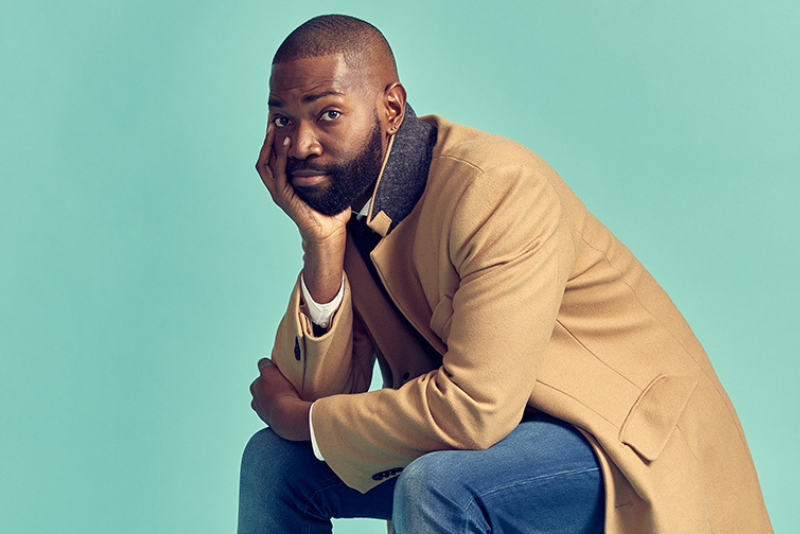
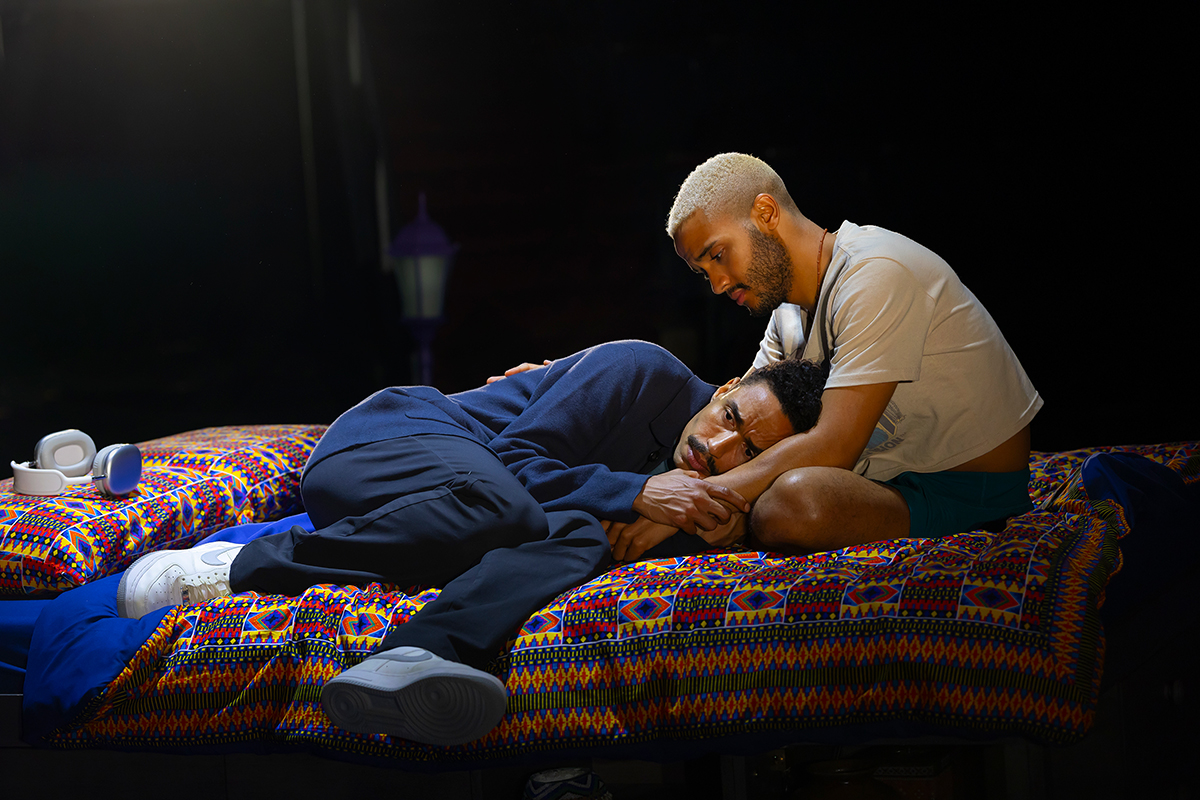











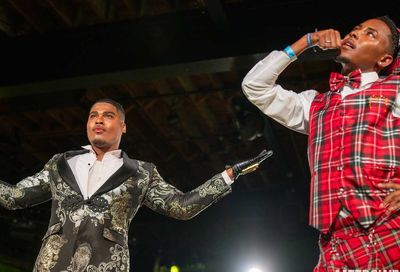
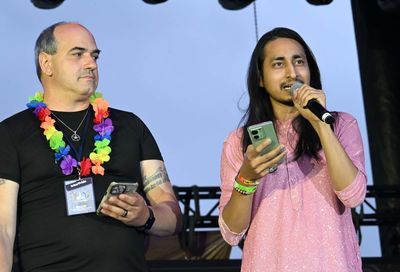
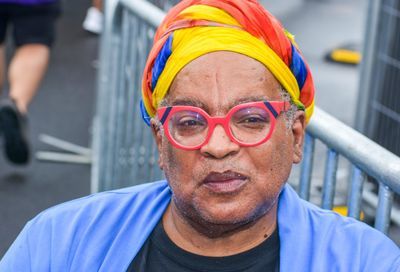
You must be logged in to post a comment.